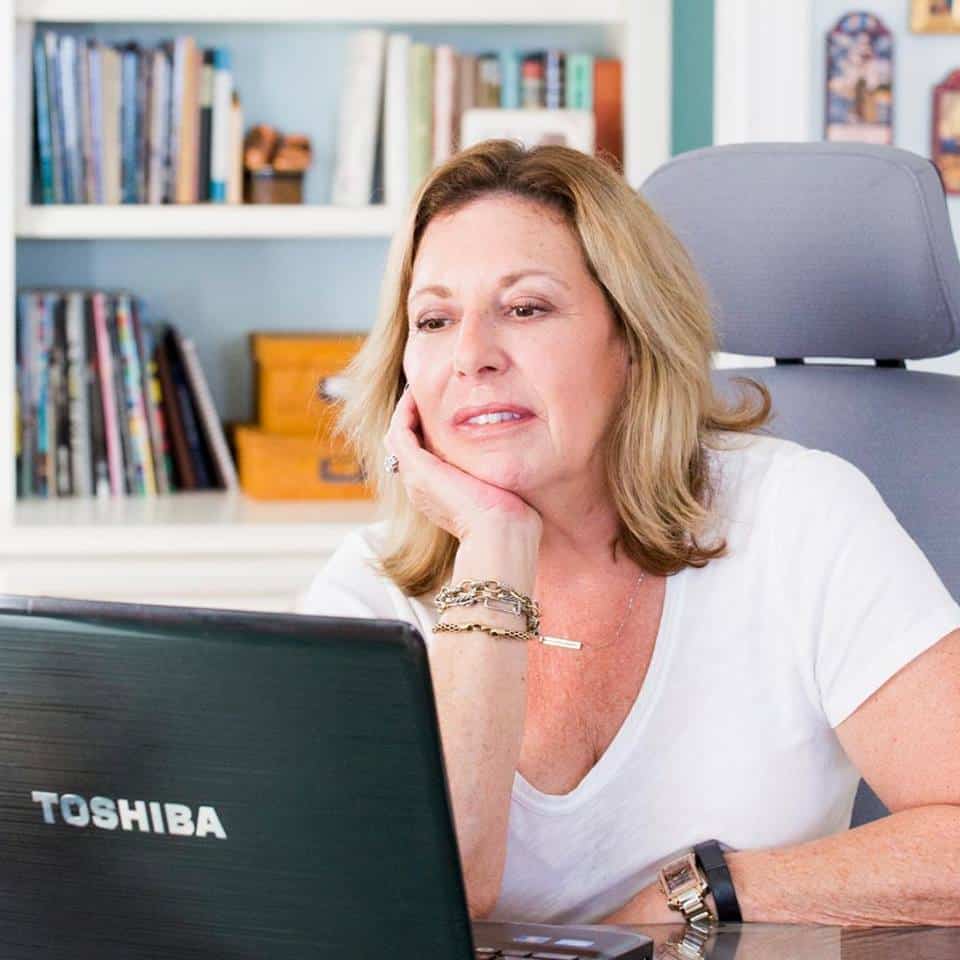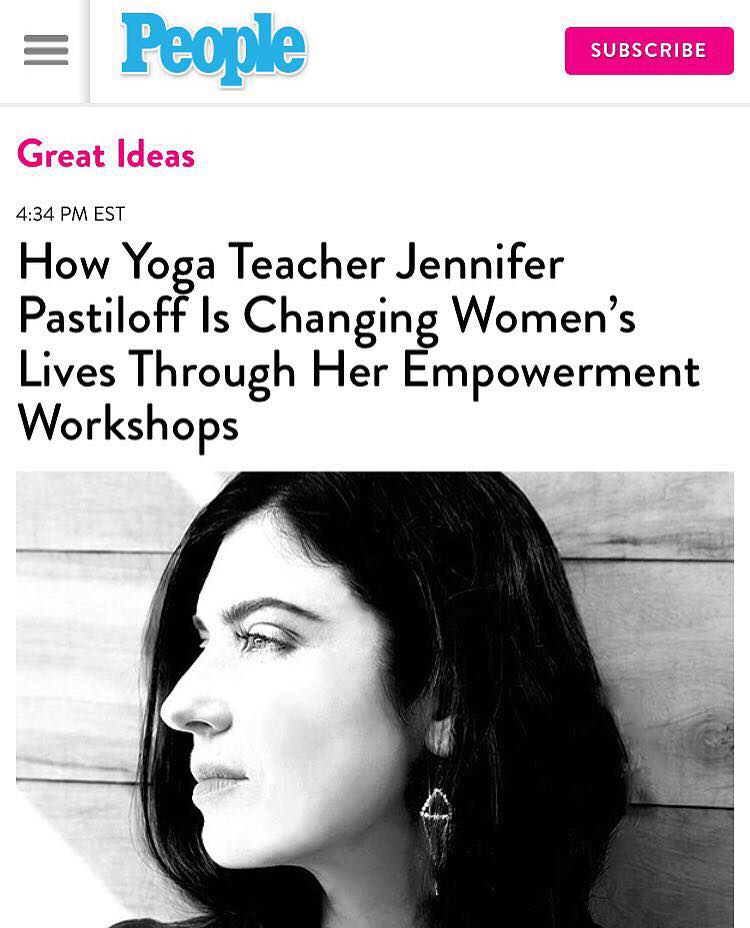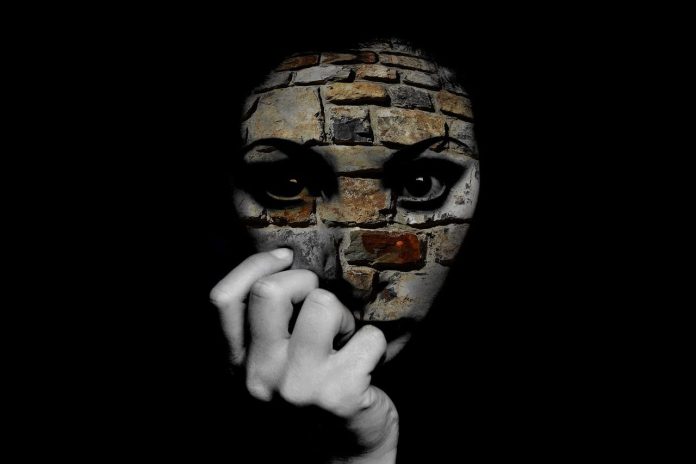By Lisa Solod
Now I know how my mother went crazy. Or, rather, crazier. Sinking down into the depths of it so far that she could not move. Literally. I know how as in how it felt, because I felt that way myself not too long ago. But I got up. My mother didn’t. Not at first, anyway. She had to be pried from her bed and taken to a mental hospital where, somehow, she got “well” enough to leave.
There were times after that, years even, when she was indeed sort of well. Unless she wasn’t. She functioned but then she had always kind of functioned, on and off, all her life. All of my life. The off part of the on and off was the hard part: for her, for me, for my father and sisters, her friends and other family. The off part was what finally sent her to bed and then landed her in a mental hospital.
I know the how but I still am not completely sure of the why.
When my mother went completely nutty at age 51, she was in the middle of a difficult menopause, alone in a big house, an empty nest stretching before her and a marriage that, after years of instability was finally breaking into pieces that could not be put back together. She had been perpetually and perennially sad for years, under-medicated and over self-medicated (vodka when she younger, white wine after middle age). I don’t know the why because I have no idea what part of her crazy was caused by menopause and what part by the simple fact of her entire crazy life catching up with her. Her breakdown was sudden but not wholly unexpected. She had had a silly sign in the kitchen for years which read: As soon as the rush is over I am going to have a nervous breakdown. I earned it, I owe it to myself and nobody is going to deprive me of it. I can still see the wooden plague, with its rough edges and decoupaged homily propped up beside the stove: it seemed more funny than prescient.
***
For both my mother and me, depression and craziness are two distinctions along the same spectrum. I have had both, I have been both, and it’s like the difference between a headache and a migraine: with a headache I can function, albeit more slowly and cautiously than normal; with a migraine I am incapacitated. This may not be the same for everyone but for me it helps me understand my mother’s final and most difficult madness, the one from which she never seemed to quite recover. It is possible that it was always there, that she was always suffering from the most severe of mental migraines and that the only thing that kept her from falling apart was the guilty duty of having to care for a husband and children, the shame of collapsing in front of the world. But it is also possible that, at menopause, a final switch—that last circuit breaker that was keeping her together–flipped. So she stopped.
I understand now better than I did then, because I went crazy like that myself not so very long ago. I was living a normal life, years off the heavy duty antidepressants I had taken for too long, and functioning on a mild dose for sleep. I had completed menopause—a long drawn out affair that had me saying good bye to my periods at 55 but which sparked no hot flashes or night sweats; although, significantly, the migraines which had plagued me as a younger woman had come back in force. I went to the emergency room twice in three years and often had as many as three migraines a work. Sometimes medicine contained them, sometimes it did not. After CT scans and MRIs detected nothing really odd, after many preventative medications did not seem to work, my doctor prescribed HRT for the menopause with the side effect that it tamped my migraines down to a manageable level. Or seemed to. They tapered off. Occasionally I would get a horrible one but new meds seemed to work.
A few months ago, on a routine visit to a new gynecologist in the new city where I live, the doctor looked at the list of my medications and said: Why are you on HRT? I told him a doctor where I used to live had put me on both the progesterone pills and the estrogen patch after I finally finished menopause. As I had trusted that doctor, I took the meds. But when this new doctor told me to go off of them–immediately, he said– I trusted him, too. He said the risks of heart attack and stroke were too great, that the benefits of the drug (balance, decent libido, no hot flashes, etc.) were outweighed by the dangers. Stop this evening, he said. Just stop taking the drugs. He frightened me. I complied.
The medications were an expensive hassle. The patch slipped off with each shower or dip in the ocean and I was glad to swallow two fewer pills each evening before bed. But less than a week after stopping the meds I stopped, too. Not only did I begin to have horrendous migraines day after day after day, some of which refused to respond to my medications, but the times I wasn’t in pain or the pain was at bay, I was suddenly a woman I hadn’t seen in a long time. I remembered her because I had seen her a long time ago. She was me. Crazy. But I didn’t feel exactly like her, either. Each of my crazies has been different. And worse. Most crucially, I felt nothing like the woman I had been since then. A woman who wasn’t crazy. I was in completely uncharted territory.
It is nearly impossible to describe that sudden onslaught of despair: the way I woke one morning and could not feel my self, at all. The way that self felt so far away and so impossible to find. I was disoriented but the feeling went beyond a mental fogginess. I was not just sad I was bereft. My whole body hurt in a profoundly terrifying way: not a pain, per se, like those in muscles or joints, but an overall feeling of such otherness that I actually could not even speak for a while. Over days I would test my voice, alone, to see if I sounded like me. To see if I could indeed speak at all.
Yet in those moments of madness I had an epiphany: I remembered the call that told me my mother had been institutionalized. I remembered reluctantly visiting her in the hospital and almost not recognizing the quiet, drugged woman who sat in front of me. I thought about the triple whammy: menopause, a separation, children gone– the whole life upended– which had landed her in the hospital. Was it any wonder that the madness which had plagued my mother her whole life had suddenly gone into overdrive and she took to her bed and could not get out? I suddenly understand that kind of crazy. I was inside it. It was inside me.
I recognized my mother’s pain. I recognized the craziness that seemed so overwhelming there was no choice but to finally give in to it. I felt sad for her, much sadder than I did for myself. But at the same time as I felt her craziness, felt for her because of it, I wallowed in my own, terrified. I struggled to decide whether there was a way out for me or whether I was locked into a permanent condition the way my mother had been. I wasn’t ready to give up but I was terrified I would have to.
But even in my lowest days I tried parse my madness. I needed an answer not just as to how it felt but why it had come. Even though I could no longer feel my body there was a small fraction of me aware enough or strong enough to try and explain it and figure why that was true and to find a way out. Some days. Some other days I merely surrendered to it.
What unnerved me was that craziness hadn’t come upon me as a cold does: that whisper of a tickle in the throat, the vaguely unwell feeling we ignore until we wake up with a headache and a nose full of snot; it had descended all at once, like a curtain closing against the sunshine. It blocked everything out, most importantly the memory of not feeling the way I did. The memory of being well, being normal, was. As the days went on, even as I gave in to the how and struggled with the why, I also wondered if this was how it was all going to end. How I was going to end. No with a bang but just this whimper.
Finally I had to reveal the depths of my despair to my partner, a psychiatrist, ironically— in a conversation during which he did most of the talking as I could barely speak. He mentioned my medications and I realized I had just gone off hormone therapy, cold turkey, after 5 years of it. Maybe, perhaps, this could be because of that? My despair had an easy why? An explicable one? A curable one? Could it be that simple? Could I have been that stupidly blind not to have made the connection? Could the chemical imbalance in me be caused by the new imbalance of chemicals in me?
I called the doctor’s office and a day later a nurse returned my calls and said, Well, this is odd. Why don’t you stay off for a few more days and then see how you feel?
I did. I slipped farther and farther down. I called again.
The nurse said Why don’t you go back on the meds, then?
So just start taking them again? I said. When the doctor was adamant about their dangers and wanted me off immediately?
Apparently, yes. I was casually and merely to choose between dangers: medication with side effects or no medication with side effects.
And while, the crazy did not leave all at once, as it had come, but in dribs and drabs, bits and bobs, the main of it was gone. Remnants remained for a few weeks. There are still bruises on my psyche that may not heal: old injuries reopened, scar tissue pulled, fear returned. I wonder if it will happen again. But I rose from it.
And one I did, I read, I did research; I did all those things which had been beyond me when I was huddled beneath the sheets, but certainly what I should have done before taking the doctor’s “advice.” I found that the sudden withdrawal of hormone treatment could be devastating. I should have thought of that immediately, but I was too eager to stop the meds and too negligent to call the doctor on his negligence.
If in either case I was the clear loser, do not blame anyone. Crazy is hard. Crazy is complex. Crazy is different for everyone.
In fact, a few weeks before that most recent tumble into crazy, I had pulled my car over to the side of the road while suffering a panic attack more acute and terrifying than ever before. I practiced breathing. Then I called 911. I texted my fiancé and said: I am going mad. Come to me. Here is where I am. The ambulance came. My fiancé came. You aren’t dying, they all said. You are not having a heart attack. My fiancé held my hand and said This is not surprising. Look at the past 18 months. And yes, the past year and a half had been…tumultuous is a nice word. When I think back on my life in general I think of it like this: move, move, move, shut down; move, move, move, shut down. Each time it happened my body was telling me there was too much going on and I needed to stop and just be. In that case, I shut down on the side of the road. But no one said I was crazy. I was relieved. Then my doctor took my off my HRT and I did go crazy.
***
My crazy has always been situational: temporary, either caused or “cured” by situations and medications. I had my first panic attack at 15 when I overheard my mother talking about leaving my father; my second when I stopped short as I carried a tray through a restaurant while on my first waitress job. Those momentary moments of madness, because I felt quite crazy each time, left as quickly as they came. I dismissed them. Many years later I had a psychotic break, so my doctor said, while taking prednisone. When I stopped the madness stopped. Years after that I had another from the drug Chantix before its horrific side effects were so publicized. I stopped that drug, too, and once again the madness retreated. Neither time was I told of the possible side effects I discovered only after healing and reading. For prednisone they include agitation, anxiety, dizziness, pounding heart heat, mental depression, mood changes, nervousness, shortness of breath and trouble thinking speaking or walking. When he gave me the samples of Chantix my doctor never asked if I had had a history of depression—which can worsen the side effect (even though it must have been in the charts that came with me when my former doctor retired and transferred me to him). I was not told of the possible trouble sleeping, changes in dreaming, agitation, suicidal thoughts, anxiety, hostility, panic, confusion, hallucinations and paranoia. Whether I am particularly susceptible to such side effects I do not know. What I do know is that with both of those drugs I experienced all of those. And when one is in the throes of such effects the possibility of feeling “normal” again seems very far away.
***
Eighteen years ago, married and the mother of an 8-year-old and a 3-year-old, I began to slowly sink into an abyss. My children were wonderful, easy even. My life, while not rich by any means, was comfortable. We had a nice house, my writing was going well. I was publishing stories and had completed my second novel. If my marriage was in shambles I had not yet acknowledged that. I had completed several years of therapy, and had actively wrestled with both my own demons and the demons which plagued my family: I began to understand that crazy ran in my family like brown eyes.
Then, one evening I suddenly could not seem breathe. I began to weep. I felt a despair that seemed incomprehensible. The way I had been feeling for months but had ignored for months gathered itself up into a ball and struck me from behind. I waited for the feeling to be just another panic attack, for it to subside in hours or days. But weeks went by and I felt no better. I went back to my therapist. After a couple of sessions he said to me: This may take more tools than I have. You have skirted depression before but this time you may need medication.
I saw a medical doctor who wrote me a prescription for Zoloft, the drug my therapist recommended. I now know I was in good company, so to speak. Ten percent of the US population and 25% of women are on SSRIs (Selective Serotonin Reuptake Inhibitors) like Zoloft and its kin. If the efficacy of such drugs is still in question, two weeks later I began to feel like me again. My marriage was still falling apart. I still hated where I lived and longed for escape. But I recognized those things: they did not consume me. I did not despair. And so I stayed on the medication until my divorce 9 years later. When I went off of it, tapering down gradually, I felt no different. No worse. No better. Just the same as I ever had been. If I was profoundly glad to have taken the drug I was equally glad to be shed of it.
***
I know people who suffer constantly from the sort of depression I suffered temporarily. Like my mother, they may refuse to take medication, not respond well when they do, try and self-medicate. I know people like my mother who won’t admit they are sick. My mother was so depressed she tried mightily to destroy everyone around her. For a very long time I hated her for being sick and hated her for pretending she wasn’t. But now that she has been felled by Alzheimer’s I am sympathetic to the black hole that was her life before. How awful it must have been to wake up each morning trapped in herself. I empathize with her hopelessness because I get it. I have really felt it. But I know how it feels not to feel that way. She never did.
Depression can be sparked by events or trauma or it can be bred in the bone. Like psychosis it can be a running narrative or a one-off. Crazy is a word used to describe insanity but it need not be permanent. Crazy can be charming. It can be dangerous. So many people feel it at some point that ordinary doctors are tinkering with drugs that used to be administered only in the worst case. And there is no way to know if we are crazy because of the world or the world crazy because of us. I was never on medication, despite the panic attacks, until that first and last full-blown depression. The crazy times were generated by medicines or the sudden lack of them. For me crazy is complicated, but the panic attacks, the depression, the temporary crazy, they are all related. Sort of like first cousins; they are in the same family even if they don’t behave exactly like. During each of them, however, my ability to think rationally, to imagine myself as a person not in panic or pain or sadness or despair was suspended. I forgot I had a mind that works.

Lisa Solod, author/editor of Desire: Women Write About Wanting (Seal Press) is an award-winning short story and essay writer and novelist. Her work appears regularly in print and online and she has been a long-time contributor to The Broad Side and the Huffington Post. Her work has been widely anthologized and has been published in the Washington Monthly, the International Herald Tribune, Talking Writing, Purple Clover, Role/Reboot, the Boston Globe and many other publications.



